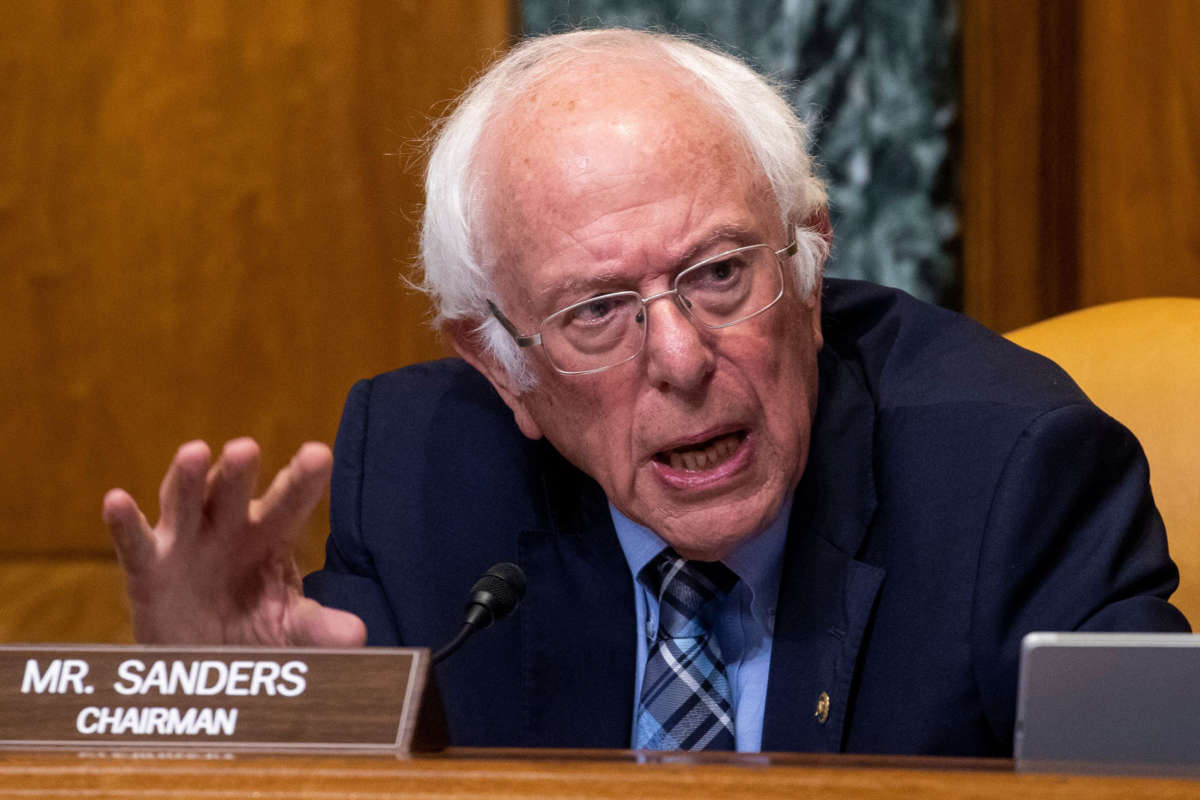Senate Majority Leader Chuck Schumer (D-New York) is embracing a push by Sen. Bernie Sanders (I-Vermont) and other progressive lawmakers to add dental, vision and hearing coverage to Medicare.
Schumer said he is “working with” the Vermont senator to include them “in the American Jobs and Families Plans,” President Joe Biden’s proposed infrastructure and relief bills.
“There is a gaping hole in Medicare that leaves out dental, vision, and hearing coverage. This is a serious problem,” Schumer said on Twitter.
Schumer reiterated his commitment to expanding items covered under Medicare while speaking during a news conference on Sunday, noting that such services would help reduce problems and costs for patients over time.
“If you talk to family medicine or primary care doctors, they will tell you with certainty that ignoring medical issues related to dental, vision and hearing often devolves into far more serious medical problems for people — especially seniors — that cost more to treat and are harder to remedy,” Schumer said.
Schumer recognized that the push to enhance coverage will be “an uphill legislative effort because there are some in the Senate who really don’t think this is a problem worth fixing.” Because of this, he said that it’s crucial to “galvanize support from the public” in order to pressure lawmakers to pass it.
Earlier this year, Sanders, along with Rep. Pramila Jayapal (D-Washington), authored an op-ed in The Washington Post calling for Medicare to cover costs for those crucial needs.
“It’s past time to fix the gaping holes that are the lack of coverage for dental, vision and hearing, which are so critical, especially as we age,” the two lawmakers said in their op-ed.
Sanders and Jayapal added:
[S]ince its inception in 1965, Medicare has not covered such basic health-care needs as hearing, dental care and vision. The result: Millions of senior citizens have teeth rotting in their mouths, are unable to hear what their children and grandchildren say or can’t read a newspaper because of failing eyesight. It is a cruel irony that older Americans do not have coverage for these benefits at the time when they need it the most.
Schumer still has many disagreements with Sanders and other progressives on Medicare. Sanders, for example, has long been a supporter of Medicare for All, expanding the popular public health insurance program to every person living in the U.S. Schumer, meanwhile, opposes the measure.
But the Senate Majority Leader has agreed with Sanders on other aspects of Medicare expansion, including lowering the eligibility age and supporting a public health insurance option to compete with private companies.
Although it would be incredibly difficult to pass a Medicare for All bill in the presently divided Congress, such a plan has support from most Americans. A Morning Consult poll conducted in March found that only 32 percent of voters oppose Medicare for All, while 55 percent are in support of the idea, which would create a single-payer health insurance for everyone in the country.
Press freedom is under attack
As Trump cracks down on political speech, independent media is increasingly necessary.
Truthout produces reporting you won’t see in the mainstream: journalism from the frontlines of global conflict, interviews with grassroots movement leaders, high-quality legal analysis and more.
Our work is possible thanks to reader support. Help Truthout catalyze change and social justice — make a tax-deductible monthly or one-time donation today.
